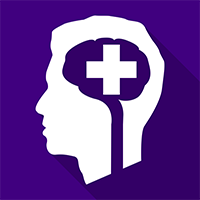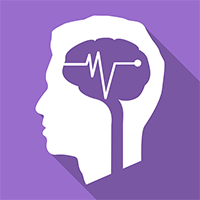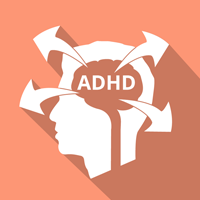- any female workers who may be of child-bearing age
- the effects of the physiological, hormonal and psychological changes that occur during pregnancy and the postnatal nursing period
- any work activities, or aspects of the workplace, which may pose a particular risk to new and expectant mothers.
-
 In order to ensure that new and expectant mothers in early years provision and schools can work without unacceptable risks to their health and safety, employers must be aware of:
In order to ensure that new and expectant mothers in early years provision and schools can work without unacceptable risks to their health and safety, employers must be aware of: -
 Our Online Adult Safeguarding course has been created because, first and foremost, every one of us has basic human rights. Chief among these is the right to be healthy, happy and treated well, regardless of race, age, sex or location. When these rights are abused in some way, it’s wrong. Therefore, it is vital that guidelines, policies, and procedures are followed to enable everyone, without exception, to live a life in which these basic values and rights are maintained and upheld. Every person, regardless of their age, sex, religion, ethnicity or background has the right to a healthy, happy life. Adult safeguarding is about minimising and managing the risks to vulnerable individuals. This Safeguarding Adults E-Learning Course is aimed at anyone who has a duty of care for, or comes into contact with, adults in need of care and support, either as a paid professional or a volunteer. This includes, but isn’t limited to, those that work in domiciliary care, the NHS, community centres, prisons or with a family member at home, and sets out the roles and responsibilities everyone must undertake to protect an adult’s right to live in safety, free from abuse and neglect. You and the organisation you work for must take appropriate and proportional measures necessary for the protection of adults in your care, while still ensuring they are supported and empowered to have control over how they want to live their lives and this course can bring you one step closer to being able to do this. This means that whatever the circumstance, you and the organisation you work for must take appropriate and proportional measures necessary for the protection of adults in your care, while still ensuring they are supported and empowered to control how they want to live their lives. During this Online Safeguarding E-Learning Course you will hear many facts, figures and details surrounding the risk to adults in need of care and support, the types of abuse suffered and key safeguarding legislation put in place to minimise the abuse of adults with care and support needs. By the end of this Online Adult Safeguarding Course, you will have learned a better understanding of safeguarding principles and be able to apply them to your role. This includes being able to define the key terminology in relation to safeguarding; identify the principle laws that relate to safeguarding and why they have been put in place to minimise abuse; recognise and respond to the ten types of abuse suffered by vulnerable adults; identify and report concerns of abuse or neglect; describe your role, responsibilities and boundaries; ensure people are supported and encouraged to make their own decisions and give informed consent, and finally manage the environment to minimise the risk of abuse. This Safeguarding Adults Online Course is approved by leading industry body CPD
Our Online Adult Safeguarding course has been created because, first and foremost, every one of us has basic human rights. Chief among these is the right to be healthy, happy and treated well, regardless of race, age, sex or location. When these rights are abused in some way, it’s wrong. Therefore, it is vital that guidelines, policies, and procedures are followed to enable everyone, without exception, to live a life in which these basic values and rights are maintained and upheld. Every person, regardless of their age, sex, religion, ethnicity or background has the right to a healthy, happy life. Adult safeguarding is about minimising and managing the risks to vulnerable individuals. This Safeguarding Adults E-Learning Course is aimed at anyone who has a duty of care for, or comes into contact with, adults in need of care and support, either as a paid professional or a volunteer. This includes, but isn’t limited to, those that work in domiciliary care, the NHS, community centres, prisons or with a family member at home, and sets out the roles and responsibilities everyone must undertake to protect an adult’s right to live in safety, free from abuse and neglect. You and the organisation you work for must take appropriate and proportional measures necessary for the protection of adults in your care, while still ensuring they are supported and empowered to have control over how they want to live their lives and this course can bring you one step closer to being able to do this. This means that whatever the circumstance, you and the organisation you work for must take appropriate and proportional measures necessary for the protection of adults in your care, while still ensuring they are supported and empowered to control how they want to live their lives. During this Online Safeguarding E-Learning Course you will hear many facts, figures and details surrounding the risk to adults in need of care and support, the types of abuse suffered and key safeguarding legislation put in place to minimise the abuse of adults with care and support needs. By the end of this Online Adult Safeguarding Course, you will have learned a better understanding of safeguarding principles and be able to apply them to your role. This includes being able to define the key terminology in relation to safeguarding; identify the principle laws that relate to safeguarding and why they have been put in place to minimise abuse; recognise and respond to the ten types of abuse suffered by vulnerable adults; identify and report concerns of abuse or neglect; describe your role, responsibilities and boundaries; ensure people are supported and encouraged to make their own decisions and give informed consent, and finally manage the environment to minimise the risk of abuse. This Safeguarding Adults Online Course is approved by leading industry body CPDSafeguarding Adults Course Modules
Introduction and Definitions Types of Abuse and the Rights of Vulnerable Recognising the Signs of Abuse What to Do if you Suspect abuse Safeguarding Legislation Approved by CPD – Duration 75 mins* -
 The General Data Protection Regulation (GDPR) is designed to strengthen and unify data protection principles for all individuals within the European Union and the European Economic Area. The GDPR is an incredibly important change to data privacy regulations. Understanding its correct implementation is vital for all UK businesses and organisations, particularly for staff who regularly deal with personal data. This online Introducing GDPR E-Learning course is designed specially for those front line staff and provides a clear introduction to the main elements of the GDPR, including compliance and the consequences of non-compliance. The Introducing GDPR e-learning course explains the roles of key players – Data Protection Officers, Data Controllers, Data Protection Leads and Data Processors and covers the main categories of personal data, along with the six lawful bases for processing data, and how to audit the data your organisation holds. Other topics examined include the Seven Principles of the GDPR and the Eight Rights for Individuals, along with the importance of your Privacy Policy – how to construct one, and how to use it effectively when dealing with data subjects. Finally, there’s important information on data breaches; how to avoid them, what to do if one is discovered and how to file a breach report.
The General Data Protection Regulation (GDPR) is designed to strengthen and unify data protection principles for all individuals within the European Union and the European Economic Area. The GDPR is an incredibly important change to data privacy regulations. Understanding its correct implementation is vital for all UK businesses and organisations, particularly for staff who regularly deal with personal data. This online Introducing GDPR E-Learning course is designed specially for those front line staff and provides a clear introduction to the main elements of the GDPR, including compliance and the consequences of non-compliance. The Introducing GDPR e-learning course explains the roles of key players – Data Protection Officers, Data Controllers, Data Protection Leads and Data Processors and covers the main categories of personal data, along with the six lawful bases for processing data, and how to audit the data your organisation holds. Other topics examined include the Seven Principles of the GDPR and the Eight Rights for Individuals, along with the importance of your Privacy Policy – how to construct one, and how to use it effectively when dealing with data subjects. Finally, there’s important information on data breaches; how to avoid them, what to do if one is discovered and how to file a breach report.Introducing GDPR Modules
Introduction Data Processing Types of Data Data Subjects’ Rights Data Breaches Approved by CPD – Duration 60 mins* -
 At the end of this course, candidates will have an understanding of what a risk assessment is and how to complete one. To achieve this the course will define important terms, provide some basic background information to explain how important risk assessments are and discuss some of the legislation that applies. It will then go on to provide practical advice on how to identify hazards and analyse risk before finishing off by explaining the responsibilities of both employers and employees with regards to risk assessment. Approved by IIRSM & CPD- Duration 90 mins*
At the end of this course, candidates will have an understanding of what a risk assessment is and how to complete one. To achieve this the course will define important terms, provide some basic background information to explain how important risk assessments are and discuss some of the legislation that applies. It will then go on to provide practical advice on how to identify hazards and analyse risk before finishing off by explaining the responsibilities of both employers and employees with regards to risk assessment. Approved by IIRSM & CPD- Duration 90 mins* -
 Approved by Gatehouse Awards – Duration 30 mins*When people have good mental health, they are more likely to fulfil their potential. That means they enjoy work and cope easily with work situations. They have a happy family life and good social relationships. Organisations are required by law to promote and protect the mental well-being of their workforce. A comprehensive Mental Health Policy, along with easy-to-understand operating procedures, will incorporate mental health issues into established organisational thinking. It will make sure everyone knows how the organisation views and deals with workplace mental health. This online Developing a Workplace Mental Health Policy E-Learning course covers the steps that organisations should consider when developing and implementing a comprehensive workplace Mental Health Policy
Approved by Gatehouse Awards – Duration 30 mins*When people have good mental health, they are more likely to fulfil their potential. That means they enjoy work and cope easily with work situations. They have a happy family life and good social relationships. Organisations are required by law to promote and protect the mental well-being of their workforce. A comprehensive Mental Health Policy, along with easy-to-understand operating procedures, will incorporate mental health issues into established organisational thinking. It will make sure everyone knows how the organisation views and deals with workplace mental health. This online Developing a Workplace Mental Health Policy E-Learning course covers the steps that organisations should consider when developing and implementing a comprehensive workplace Mental Health PolicyDeveloping a Workplace Mental Health Policy Modules
Introduction Implementing a Workplace Mental Health Policy -
 Mental Health First Aid teaches participants how to notice and support individuals who may be experiencing mental health issues or exhibiting the signs of substance use in a work environment. They are also taught how to connect those people with appropriate help from fellow employees, community resources or healthcare professionals. Around 25 per cent of the UK population will experience a mental health problem at some point in their lives. Most are mild, tend to be short-term and are usually treated successfully with therapy and medication. But it is still a significant problem. Mental Health First Aid teaches participants how to notice and support individuals who may be experiencing mental health issues or exhibiting the signs of substance use in a work environment. They are also taught how to connect those people with appropriate help from fellow employees, community resources or healthcare professionals. The course introduces the subject and outlines the benefits of Mental Health first aid and workplace wellness schemes. It then goes on to cover the effects of stress on individuals and teams and discusses how stress and mental health are linked. It then covers the roles of employers, managers and employees in ensuring that a Mental Health First Aid programme is successful. It concludes with a series of practical examples of how to apply mental health first aid to real situations, how to support employees who are experiencing mental health issues and where to point them for further help and advice. Approved by Gatehouse Awards – Duration 90 mins*
Mental Health First Aid teaches participants how to notice and support individuals who may be experiencing mental health issues or exhibiting the signs of substance use in a work environment. They are also taught how to connect those people with appropriate help from fellow employees, community resources or healthcare professionals. Around 25 per cent of the UK population will experience a mental health problem at some point in their lives. Most are mild, tend to be short-term and are usually treated successfully with therapy and medication. But it is still a significant problem. Mental Health First Aid teaches participants how to notice and support individuals who may be experiencing mental health issues or exhibiting the signs of substance use in a work environment. They are also taught how to connect those people with appropriate help from fellow employees, community resources or healthcare professionals. The course introduces the subject and outlines the benefits of Mental Health first aid and workplace wellness schemes. It then goes on to cover the effects of stress on individuals and teams and discusses how stress and mental health are linked. It then covers the roles of employers, managers and employees in ensuring that a Mental Health First Aid programme is successful. It concludes with a series of practical examples of how to apply mental health first aid to real situations, how to support employees who are experiencing mental health issues and where to point them for further help and advice. Approved by Gatehouse Awards – Duration 90 mins* -
 This course explains the difference between mental health and mental illness. It covers the symptoms of a number of the most common mental illnesses so you will know what to look out for or what to expect if you are working with someone with one of these conditions. As well as providing some practical advice on how you can work effectively with those affected by these conditions.
This course explains the difference between mental health and mental illness. It covers the symptoms of a number of the most common mental illnesses so you will know what to look out for or what to expect if you are working with someone with one of these conditions. As well as providing some practical advice on how you can work effectively with those affected by these conditions.Mental Health Awareness Course Modules
What is mental illness and prevalence rates Symptoms of Bi-Polar, depression, psychotic disorders and schizophrenia Symptoms of anxiety, personality disorder, self-harming Approved by CPD – Duration 25 mins* -
 This course will give you an overview of epilepsy. It lists the methods of diagnosis, what a seizure is and how the brain can be affected. It will introduce some possible seizure triggers and describe what to do when someone has a seizure. It will also discuss some of the treatments offered to people with epilepsy and provide practical advice on what you can do if you witness someone having a seizure. Approved by CPD – Duration 30 mins*
This course will give you an overview of epilepsy. It lists the methods of diagnosis, what a seizure is and how the brain can be affected. It will introduce some possible seizure triggers and describe what to do when someone has a seizure. It will also discuss some of the treatments offered to people with epilepsy and provide practical advice on what you can do if you witness someone having a seizure. Approved by CPD – Duration 30 mins* -
 Diabetes is a serious lifelong health condition that occurs when the amount of glucose, or sugar, in the blood is too high. If left untreated, high blood glucose levels can cause serious health complications. This course is aimed at people working in the health and social care sector and will provide an overview of the condition, the common symptoms that might indicate someone has diabetes, methods of diagnosis, some possible treatments and common complications that can affect those with the condition. Approved by CPD – Duration 45 mins*
Diabetes is a serious lifelong health condition that occurs when the amount of glucose, or sugar, in the blood is too high. If left untreated, high blood glucose levels can cause serious health complications. This course is aimed at people working in the health and social care sector and will provide an overview of the condition, the common symptoms that might indicate someone has diabetes, methods of diagnosis, some possible treatments and common complications that can affect those with the condition. Approved by CPD – Duration 45 mins* -
 This course will provide you with an understanding of what autism is and how it affects a child’s daily life. It will touch on what factors contribute towards a child developing autism as well as some of the typical behaviours associated with it and how to can provide effective support for those with the condition. It also discusses what happens during the diagnosis process, some of the intervention methods that can help manage the condition and suggests some simple adaptations you can make to improve a child with autism’s day to day life. Approved by CPD – Duration 30 mins*
This course will provide you with an understanding of what autism is and how it affects a child’s daily life. It will touch on what factors contribute towards a child developing autism as well as some of the typical behaviours associated with it and how to can provide effective support for those with the condition. It also discusses what happens during the diagnosis process, some of the intervention methods that can help manage the condition and suggests some simple adaptations you can make to improve a child with autism’s day to day life. Approved by CPD – Duration 30 mins* -
 ADHD is a chronic condition that creates a range of persistent symptoms such as difficulty sustaining attention, hyperactivity and impulsive behaviour. The course covers the definitions of ADHD, the different types of ADHD and how to recognise some key signs and symptoms. Beyond this the course will look at some of the possible causes of ADHD, how it is diagnosed and how it can be treated, including environmental changes, types of therapy and medication that can be prescribed. Approved by CPD – Duration 45 mins*
ADHD is a chronic condition that creates a range of persistent symptoms such as difficulty sustaining attention, hyperactivity and impulsive behaviour. The course covers the definitions of ADHD, the different types of ADHD and how to recognise some key signs and symptoms. Beyond this the course will look at some of the possible causes of ADHD, how it is diagnosed and how it can be treated, including environmental changes, types of therapy and medication that can be prescribed. Approved by CPD – Duration 45 mins* -
 Current legislation, The Regulatory Reform (Fire Safety) Order 2005, applies to all workplaces regardless of the number of employees and requires employers to provide adequate training in fire awareness for all members of their staff. Our Online Fire Marshal training courses are aimed at all employees to assist them in identifying and reducing the risk that fire presents in the workplace. Fire marshals (sometimes known as fire wardens) are civilians trained to assist in emergency fire evacuation procedures at businesses and other organizations. It is a legal obligation that workplaces must have sufficient fire marshals to deal with fire emergencies. This Fire Marshal E-Learning training course provides extensive knowledge of fire prevention, evacuation protocol and using fire extinguishers. It is a cost-effective way for employers to fulfil their legal obligation to provide their employees with the necessary understanding of fire awareness. Candidates can progress through the modules at their own pace and in their own time to fit the training in around their work and personal life. The Fire Marshal E-Learning course is approved by leading industry bodies: The Institute of Hospitality, IIRSM, Gatehouse Awards & CPD Please note, this course also contains all of the content in the Basic Fire Awareness and Fire Extinguisher courses.
Current legislation, The Regulatory Reform (Fire Safety) Order 2005, applies to all workplaces regardless of the number of employees and requires employers to provide adequate training in fire awareness for all members of their staff. Our Online Fire Marshal training courses are aimed at all employees to assist them in identifying and reducing the risk that fire presents in the workplace. Fire marshals (sometimes known as fire wardens) are civilians trained to assist in emergency fire evacuation procedures at businesses and other organizations. It is a legal obligation that workplaces must have sufficient fire marshals to deal with fire emergencies. This Fire Marshal E-Learning training course provides extensive knowledge of fire prevention, evacuation protocol and using fire extinguishers. It is a cost-effective way for employers to fulfil their legal obligation to provide their employees with the necessary understanding of fire awareness. Candidates can progress through the modules at their own pace and in their own time to fit the training in around their work and personal life. The Fire Marshal E-Learning course is approved by leading industry bodies: The Institute of Hospitality, IIRSM, Gatehouse Awards & CPD Please note, this course also contains all of the content in the Basic Fire Awareness and Fire Extinguisher courses.Fire Marshal Modules
Chemistry of Fire Common Causes of Fire Basic Safety Features in Buildings Introduction to Fire Extinguishers What to do in Cases of Fire? Fire Statistics Current Fire Safety Legislation Fire Risk Preventative Measures Safety Features within Buildings Role of the Fire Marshal Action on Fire Discovery Fire Drills and Evacuation Fire Extinguishers Pre-Engagement Action Using a Fire Extinguisher Approved by Institute of Hospitality, IIRSM, Gatehouse Awards & CPD – Duration 220 mins*
